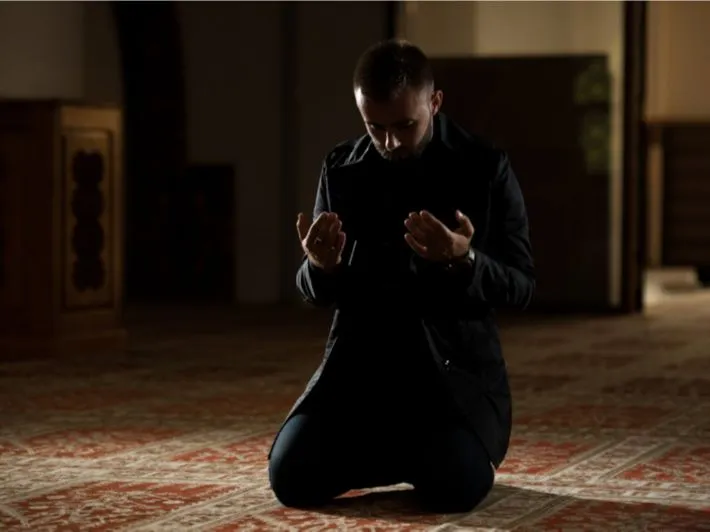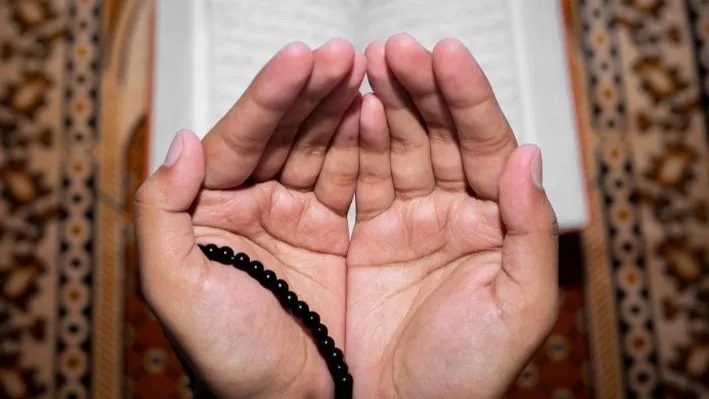- +201040914066
- info@quraaany.com


Dua for depression,Depression is a mental health condition that affects millions of people worldwide, causing feelings of sadness, hopelessness, and despair. In many cultures, faith and spirituality play a significant role in coping with mental health issues, including depression. In Islam, ‘Dua’ (supplication) is a powerful tool used to seek comfort, guidance, and healing. the Dua when you feel a depression’ is a specific supplication that Muslims recite to seek relief from the symptoms of depression. By invoking the power of dua, individuals can find solace, peace, and strength to navigate the challenges of depression.
dua for depression
Many turn to faith for solace and healing. For Muslims, dua (supplication) is a powerful tool for seeking relief from emotional distress. The belief in the power of prayer and the concept of divine intervention offer a sense of hope and comfort to those struggling with depression.
Reciting specific duas can provide emotional support and help individuals develop a more positive outlook. These duas express trust in Allah’s ability to heal and provide comfort. By turning to Allah during times of despair, individuals can find strength, resilience, and a renewed sense of purpose.
Moreover, dua is not merely a passive act but an active engagement with the divine. It involves expressing one’s feelings, seeking guidance, and placing one’s trust in Allah’s wisdom and mercy. This process can be a source of healing and empowerment.

Read more: Powerful Dua for Marriage: Seek Blessings for Love
Examples about dua for depression
When facing the challenges of depression, many Muslims turn to dua (supplication) as a source of comfort and healing. There are numerous duas that can be recited to seek relief from the symptoms of depression and to find peace of mind.
- One common dua for depression is:
اللهم انى اسألك شفاءً وعافيةً.
O Allah, I ask You for healing and wellness.
This dua expresses a general plea for relief from both physical and emotional pain. Additionally, many Muslims recite verses from the Quran, such as Surah al-Fatiha and Ayatul Kursi, to seek Allah’s protection and guidance.
- Other specific dua for depression may include asking Allah to increase one’s faith, to grant patience, and to alleviate sadness. For example, one could recite:
اللهم إني أسألك زيادة في إيماني وشفاء في بدني.
O Allah, I ask You for increase in my faith and healing in my body.
- Another relevant dua is:
اللهم انى اسألك عافيةً في ديني ودنياي وآخرتي.
O Allah, I ask You for health in my religion, my worldly life, and my afterlife.
This dua for depression expresses a desire for holistic well-being, encompassing both physical and spiritual health.
Seeking Spiritual Relief by dua for depression
In the face of depression, many people turn to religion and spirituality for solace and healing. For Muslims, dua for depression plays a central role in seeking relief from emotional distress. Dua is a direct form of communication with Allah, the Almighty, where individuals express their hopes, fears, and desires. When faced with the challenges of depression, turning to dua can provide a sense of comfort, hope, and connection to something greater than oneself.
The Role of Dua in Mental Health
Numerous studies have shown the positive impact of spirituality on mental health. Engaging in religious practices, such as prayer and meditation, can reduce symptoms of depression, anxiety, and stress. Dua, in particular, offers a unique form of therapy that addresses both the spiritual and psychological aspects of mental health. By expressing gratitude, seeking forgiveness, and placing trust in Allah, individuals can cultivate a more positive outlook on life.

Read more: Dua for Parents: A Sincere Prayer for Their Health and Happiness
The Importance of Sincerity and Belief
The effectiveness of dua is closely tied to the sincerity and belief of the supplicant. When we turn to Allah with a sincere heart and a deep conviction in His ability to heal, our dua for depression are more likely to be answered. It is important to remember that dua is not a magical formula but rather an expression of our faith and trust in Allah.
Combining Dua with Medical Treatment
It is essential to emphasize that dua should not be seen as a replacement for medical treatment. Rather, it should be seen as a complementary approach. Many individuals who seek relief from depression benefit from a combination of therapy, medication, and spiritual practices such as dua. By addressing both the physical and spiritual dimensions of their condition, individuals can experience a more comprehensive healing process.
Duas for Mental Health
In Islam, dua (supplication) is a powerful tool for seeking spiritual and emotional well-being. When faced with challenges such as depression, anxiety, or stress, turning to Allah through dua can provide comfort, hope, and a sense of connection. By expressing our thoughts and feelings to Allah, we can find solace and strength to overcome our difficulties.
Specific Duas for Mental Health There are numerous duas that can be recited to seek relief from mental health challenges. Some of the most commonly recited duas include:
- Seeking Allah’s protection:
اللهم إني أعوذ بك من الهم والحزن والضعف والكسل والبخل والجبن والمديون وغلبة الرجال.
O Allah, I seek refuge in You from worry, sadness, weakness, laziness, miserliness, cowardice, debt, and being overpowered by men.
- Seeking Allah’s forgiveness:
رب اغفر لي وارحمني إنك أنت الأول والآخر
O my Lord, forgive me and have mercy upon me, indeed, You are the First and the Last.
- Expressing gratitude:
الحمد لله
All praise is due to Allah.
This simple phrase can help shift one’s focus from negativity to gratitude.
The Benefits of Dua for Mental Health
Reciting duas can have a profound impact on mental health. Some of the benefits include:
- Reduced stress and anxiety: Dua can help to calm the mind and reduce feelings of anxiety.
- Increased sense of peace: By connecting with Allah, individuals can experience a deep sense of peace and tranquility.
- Improved coping mechanisms: Dua can provide individuals with tools to cope with difficult situations and challenges.
- Enhanced resilience: Regular dua can help individuals develop greater resilience and the ability to bounce back from adversity.
Combining Dua with Professional Help
It is important to note that dua is not a substitute for professional mental health treatment. When struggling with mental health issues, it is essential to seek help from qualified healthcare professionals. Dua can complement medical treatment by providing spiritual support and enhancing the overall healing process.
Dua for depression serves as a powerful tool for healing. Through sincere prayer and connection with the divine, individuals can find solace, strength, and hope amidst their struggles, fostering inner peace.
Tags: